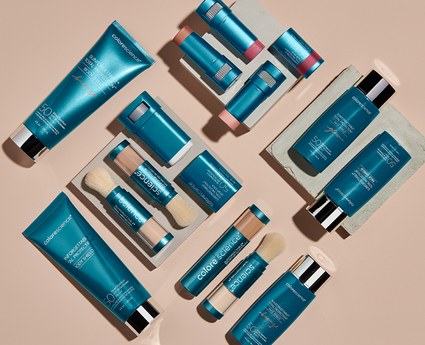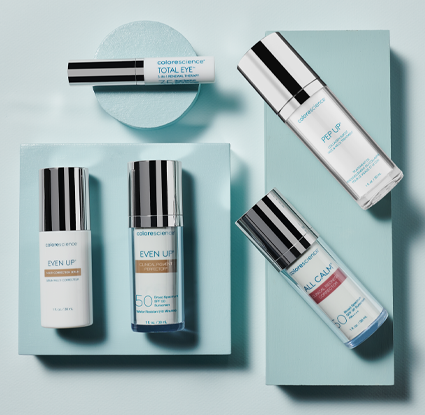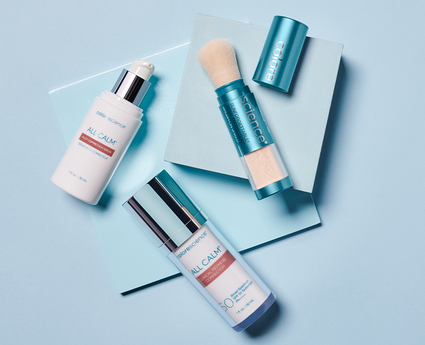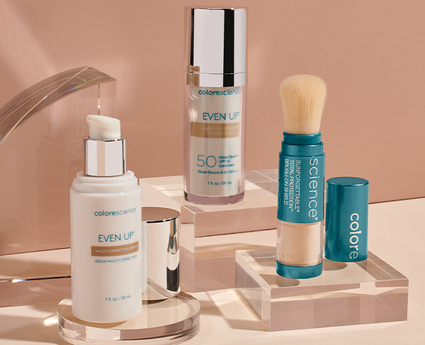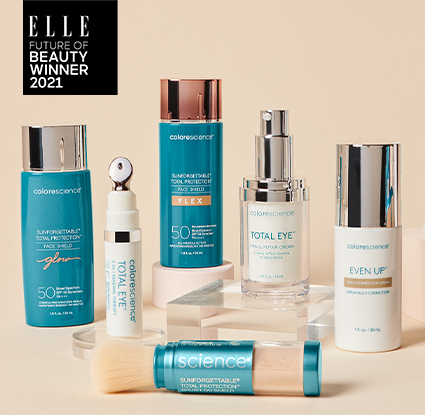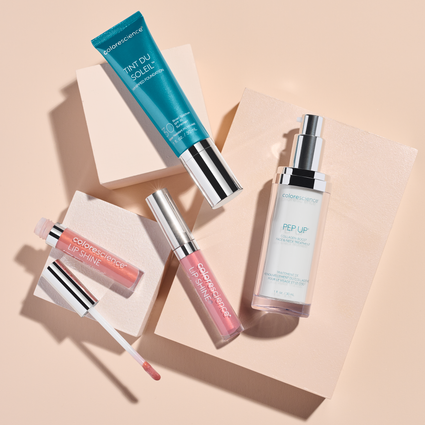4 Sunscreen Ingredients to Avoid During Pregnancy
It’s common knowledge that pregnant women must take extra precautions throughout the course of the pregnancy to ensure the health of their child. For example, pregnant women must avoid substances like alcohol and tobacco, while following a healthy diet and getting plenty of rest. But, in addition to paying attention to what goes in their bodies, pregnant women must also be careful when it comes to what they put on their bodies.
While sunscreen may seem completely innocuous under normal circumstances, some sunscreens contain chemicals and toxins that can absorb into the skin and enter the bloodstream. Certain chemicals can potentially impact the health of both you and your baby. This is why it’s so important to understand which sunscreen ingredients to avoid while pregnant.
In this article, we list a number of sunscreen ingredients to avoid during pregnancy. If you want to learn more about what ingredients to avoid in sunscreen while pregnant—as well as why you should avoid them—continue reading. You can also use the links below to skip to any part of this article.
- Is Sunscreen Safe During Pregnancy?
- Sunscreen Ingredients to Avoid While Pregnant
- What Is the Best Sunscreen for Pregnant Women?
- Final Notes
Is Sunscreen Safe During Pregnancy?
In general, sunscreen is safe for pregnant women. So, if you’re heading to the beach or stepping out on a sunny day, you can still apply sunscreen and protect your skin like you normally would.
However, some sunscreens contain certain ingredients that aren’t recommended for pregnant women.

Below, we go into more detail about the different types of sunscreen ingredients to avoid when pregnant and explain what the best sunscreen for pregnant women is.
Sunscreen Ingredients to Avoid While Pregnant
Some sunscreen ingredients can prove harmful to you or your baby. And, if you’re an expecting mother, you want to do everything in your power to ensure your baby’s health and keep them out of harm’s way while in the womb. With that being said, here are the primary sunscreen ingredients to avoid while pregnant.
 1. Homosalate
1. Homosalate
Homosalate is an endocrine disruptor, meaning it can interfere with the normal functioning of your hormonal system. As you probably already know, the female body undergoes drastic hormonal changes during pregnancy.
Hormones such as estrogen and human placental lactogen (hPL) are present at high levels during pregnancy and serve to ensure the health of the pregnancy and transfer nutrients to the fetus. Chemicals that can potentially disrupt your body’s regulation of hormone levels, such as homosalate, should be avoided while pregnant so that you’re able to successfully produce the hormones you need for a healthy pregnancy.
Another reason to avoid homosalate is due to the fact that it can increase the skin’s capability to absorb different chemicals. Homosalate itself is absorbed by the outer layer of skin and its ability to facilitate skin absorption can leave your skin more vulnerable to absorbing harmful pesticides and other toxic chemicals.
2. Oxybenzone
Oxybenzone is a common ingredient in many chemical sunscreens. Once applied, it quickly enters the bloodstream. Given that oxybenzone is a photocarcinogen, it can damage DNA, lead to the production of free radicals, and even increase the likelihood that cancer cells form in the body. Some of the conditions that have been associated with oxybenzone include:
- Abnormally low birth weights
- Melanoma
- Breast cancer
- Hormone disruptions
- Skin allergies
- Eczema
- Endometriosis
Additionally, some studies have found trace amounts of oxybenzone in breast milk, meaning it can be passed along to your baby. Thus, oxybenzone is one of the most critical sunscreen ingredients to avoid while pregnant. In fact, pregnancy aside, you should probably just avoid it in general.

3. Octocrylene
Octocrylene is another ingredient which can be found in many chemical sunscreens. The substance is quickly absorbed into the skin and trace amounts of it can be found in the bloodstream. As octocrylene absorbs UVB and UVA rays, it can lead to the production of free radicals in the body. These free radicals can potentially attack DNA and cause cell damage, cell death, and cellular mutation.
While octocrylene can be effective in protecting one’s skin from UV rays and its toxicity is relatively low, pregnant women may want to avoid using this chemical. Even the trace amounts that are found in the bloodstream can ultimately impact your baby.
4. Avobenzone
Avobenzone is an endocrine disruptor found in a wide array of chemical sunscreens. Like the other other chemical ingredients on this list, avobenzone is absorbed by the skin following application. According to studies conducted by the FDA, trace amounts of avobenzone remain in the bloodstream and skin for weeks after you’ve applied the substance. Additionally, avobenzone and certain other sunscreen ingredients have been found in samples of breast milk and urine.
So why is avobenzone a sunscreen ingredient to avoid while pregnant? Because UV rays can cause the chemical to degrade, and breakdown products can lead to allergic reactions, hormone disruptions, and other potential health issues. If you’re pregnant, it’s best to avoid avobenzone to steer clear of these health problems down the road.
While this might seem like a lot of ingredients you’ll need to be on the lookout for, that doesn’t mean you’re stuck with low-quality options. There are plenty of pregnancy-safe sunscreens out there, and knowing how to read your sunscreen labels is the first step to finding one.
What Is the Best Sunscreen for Pregnant Women?
So, now that you know which sunscreen ingredients to avoid while pregnant, you’re probably wondering what the best sunscreen for pregnant women is.
When you’re pregnant, you want to do everything possible for the health and safety of your baby. You eat healthy, stop drinking and smoking, get lots of sleep, and prioritize your own health for the sake of your child. But in addition to all of these lifestyle changes you make when you’re pregnant, you should also make sure you put the right products on your skin, including your sunscreen.

There are various types of sunscreens that contain different ingredients and come in different formulas. But when you’re pregnant, it’s imperative to avoid certain sunscreen ingredients, like homosalate, oxybenzone, octocrylene, and avobenzone, which can be harmful to you and your baby. The best type of sunscreen you can wear while pregnant is physical sunscreen, which you can find when you shop with Colorescience.
If you’re pregnant, you’ll want to opt for physical sunscreen over chemical sunscreen for several reasons. Physical sunscreen, also known as mineral sunscreen, sits on top of the skin and contains natural minerals that reflect the sun’s rays. Physical sunscreens typically include ingredients like zinc oxide and titanium dioxide, which are safe to use on the skin during pregnancy.
Chemical sunscreens, on the other hand, contain chemicals that absorb UV rays and convert them into heat, which are then released from the skin. The chemicals that are often found in chemical sunscreens include oxybenzone, octinoxate, octisalate, and avobenzone, all of which should not be used during pregnancy.
Pregnant women should always use paraben-free and fragrance-free sunscreen as those are the most gentle and non-irritating on the skin. The sunscreen you use while pregnant should always be mineral based and free of any unknown chemicals. Remember, you’re not just caring for yourself anymore. You’ve got a whole other human being to think about when it comes to what products you put on your skin.
Any sunscreen you use–whether you’re pregnant or not– should always be broad-spectrum. Broad-spectrum sunscreen means it protects against both UVA and UVB rays. And, last but not least, the SPF in your sunscreen should also be at least 30 rating or higher and water resistant, for added protection.
Choosing the right sunscreen to wear while pregnant is imperative for the health of you and your baby. Fortunately, there are many options of pregnant-safe sunscreens out there that will protect you from harmful UV rays and keep your skin healthy.
Final Notes
Fortunately, finding a safe, high-quality sunscreen to use while you’re pregnant is easy. Colorescience has developed a myriad of different skincare and makeup products, including physical sunscreen that are safe to wear during pregnancy. All of our sunscreens are natural, mineral-based formulas designed to make wearing sunscreen all-day, every day accessible.
In addition to sunscreen, we have corrective pigmentation skincare that’s designed to minimize the appearance of discoloration on your skin. We also have various skincare products that can help to reduce skin redness and even out your skin tone. You’ll find everything from physical sunscreen to a skin perfector that will make your skin look as clear and even as ever, even with all those pregnancy hormones threatening your complexion.
Shop our selection now to find everything you need for proper suncare and skincare during your pregnancy. And, keep in mind that you can keep using our products afterward to ensure you’re using products that are good for your overall health. We have products that are safe for mom and baby for all the years to come.

